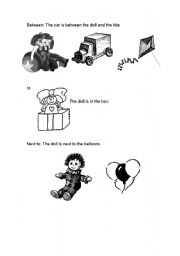
|
Prepositions
It is a sheet with some pictures which illustrate the meaning of some prepositions
Level: elementary
Age: 3-7
Type: others
Downloads: 2
|
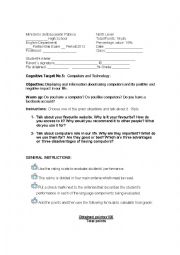
|
Speaking rubric
It is a rubric to assess students�oral performance. It is designed for assessing computers and technology topic, but you can easily adapt it to assess other contents. It has the administrative part as well as the criteria to grade students. I hope you like it and find it useful.
Level: intermediate
Age: 12-17
Type: others
Downloads: 13
|
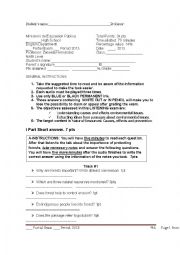
|
Listening test about environmental issues
This is a listening test to assess students�listening skill about environmental issues. At the end of the worksheet you will find the links for the videos. You can also download the MP3 audio using the YouTube mp3 converter tool.
Level: intermediate
Age: 12-17
Type: worksheet
Downloads: 52
|
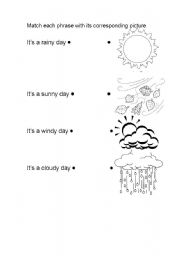
|
Weatherconditions
In this sheet the studet has to match the weather condition wth its picture.
Level: elementary
Age: 5-12
Type: worksheet
Downloads: 4
|
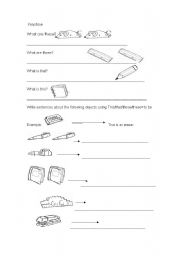
|
Using demonstrative pronouns
Students can practice the use of demonstrative pronouns to describe the shool objects and answer the questions
Level: elementary
Age: 6-12
Type: worksheet
Downloads: 5
|
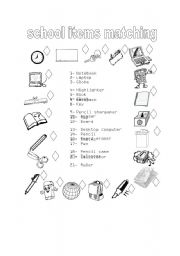
|
School Items Matching
Match the school item with its name.
Level: elementary
Age: 7-17
Type: worksheet
Downloads: 7
|
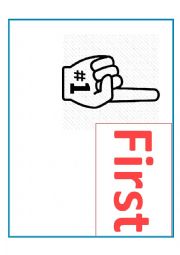
|
Transition Words
These are posters to help Ls to understand the use of five basic time sequencing words to describe events.
Level: elementary
Age: 6-14
Type: flash-card
Downloads: 12
|
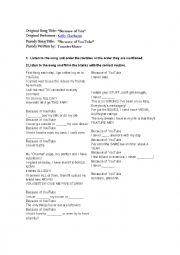
|
Daily routines
It is a song which can help studetns to review daily routines. You should cut the pictures about routines and ask them to arrange pictures in the order they are heard. And finally you can ask them to fill in the blank with the missing words.
I can send you the MP3 file if you need it or you can also play the youtube video in this link: http://yo...
Level: elementary
Age: 9-17
Type: worksheet
Downloads: 9
|
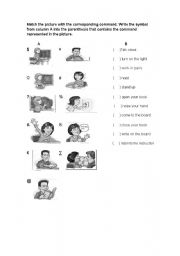
|
Classroom commands1
It is a matching of pictures with the command
Level: elementary
Age: 6-10
Type: worksheet
Downloads: 12
|
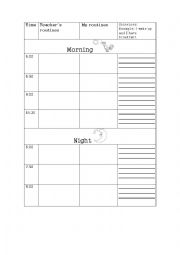
|
Comparing Daily Routines
Students will listen to the teacher`s routines and paste the picture in the blank according to her dictation. Then they will paste the pictures that illustrates the routine at each time of the day. They can use the planner to describe and compare his routines by saying: At 9:00pm I watch TV while/but the teacher reads.
Level: intermediate
Age: 11-14
Type: worksheet
Downloads: 6
|